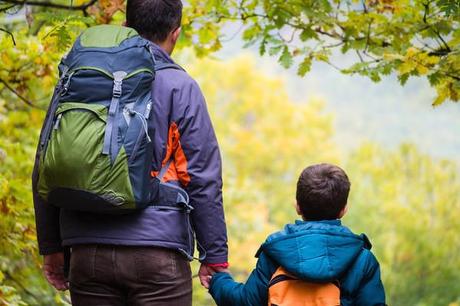
While having children is one of life's greatest joys, every parent realizes pretty quickly that it's also the most important responsibility they'll ever shoulder. Keeping kids safe, healthy, and happy and providing them with the knowledge, tools, and life lessons that will ensure their future happiness and success is no easy undertaking. In fact, it's a lifelong pursuit. And it can be terrifying to think how easily your best efforts could be derailed by the actions of others, or even by random chance. It is for this very reason that many have chosen to follow the path of preparedness, ensuring not only safety and survival in the event of catastrophe, but also a level of care and comfort that children have come to rely on. If you want the best for your kids (and what parent doesn't?), you need to prepare for the worst, even while hoping for the best. And you should take steps to make sure your kids are ready, as well. Here are a few ways you can get even the tiniest tots on board with prepping.
Create and Practice Emergency Drills
Although small children will rely on you completely in the event of a natural disaster or other emergency situation, kids as young as about four or five can still memorize important information (like a contact number, a home address, or how and when to dial 9-1-1) and learn to follow a basic evacuation plan. So it's important to talk to your kids about the possibility of emergency situations. Then, you should run them through regular drills in case of fire, earthquake, flood, and so on. Your plan should include a meeting place in case you are separated. And don't think that you have to frighten your children. Things happen - it's part of life. And being prepared can help them remain calm and focused at a time when they definitely need to do so.
Teach Kids First Aid
As children get older, you can begin to teach them basic life-saving techniques like CPR, the Heimlich maneuver, and using an EpiPen, as well as first aid procedures like disinfecting and bandaging wounds, how and when to apply a tourniquet, and perhaps even more complex procedures like sewing stitches, just for example. It's not as though you have to put them through a pre-med program, but they should know first aid basics – just in case (so should you).
Grow an Organic Garden
One part of prepping that kids are sure to enjoy is gardening. Most children love to get their hands in the dirt and watch as their efforts produce incredible results in the way of fruits and vegetables. Plus, this will help get them excited about canning, jamming, cooking, and every part of the farm-to-table method of consumption.
Exercise Regularly
While the ideal situation in the event of an emergency or disaster is that you'll be able to remain in your home, this might not always be feasible, especially if you are evacuated from your area. In this case, you and your family could find yourselves having to hoof it to reach a safe place. So being physically fit is an important part of preparedness, in addition to creating an overall state of good health and well-being.
Teach Sustainable Practices
Disaster situations could leave you without power, water, gas, and access to other amenities. And sustainable practices can help your family make it through. This might mean using a cistern to collect water, adopting a vegetarian diet, learning to make a fire, and other survival skills that don't rely on services provided by others.
Sign up for Survival Camps
Going on family camping trips is a great way to help kids understand that they can live off the land if they have to. But you can take your forays into nature a step further by signing up for survival camps that teach everyone how to make shelters, create weapons, build fires, hunt, fish, and do everything necessary to survive in the wilderness.
Have Fun!
As you probably know, preparing for potential disaster situations is no easy undertaking. And kids need not be privy to every detail of the process, at least not until they're older. If you want to get them on the right track, there are ways to make the process fun for them. When they associate being prepared and responsible with enjoyment and pride from a young age, your kids will carry the lessons you teach them into adulthood.
